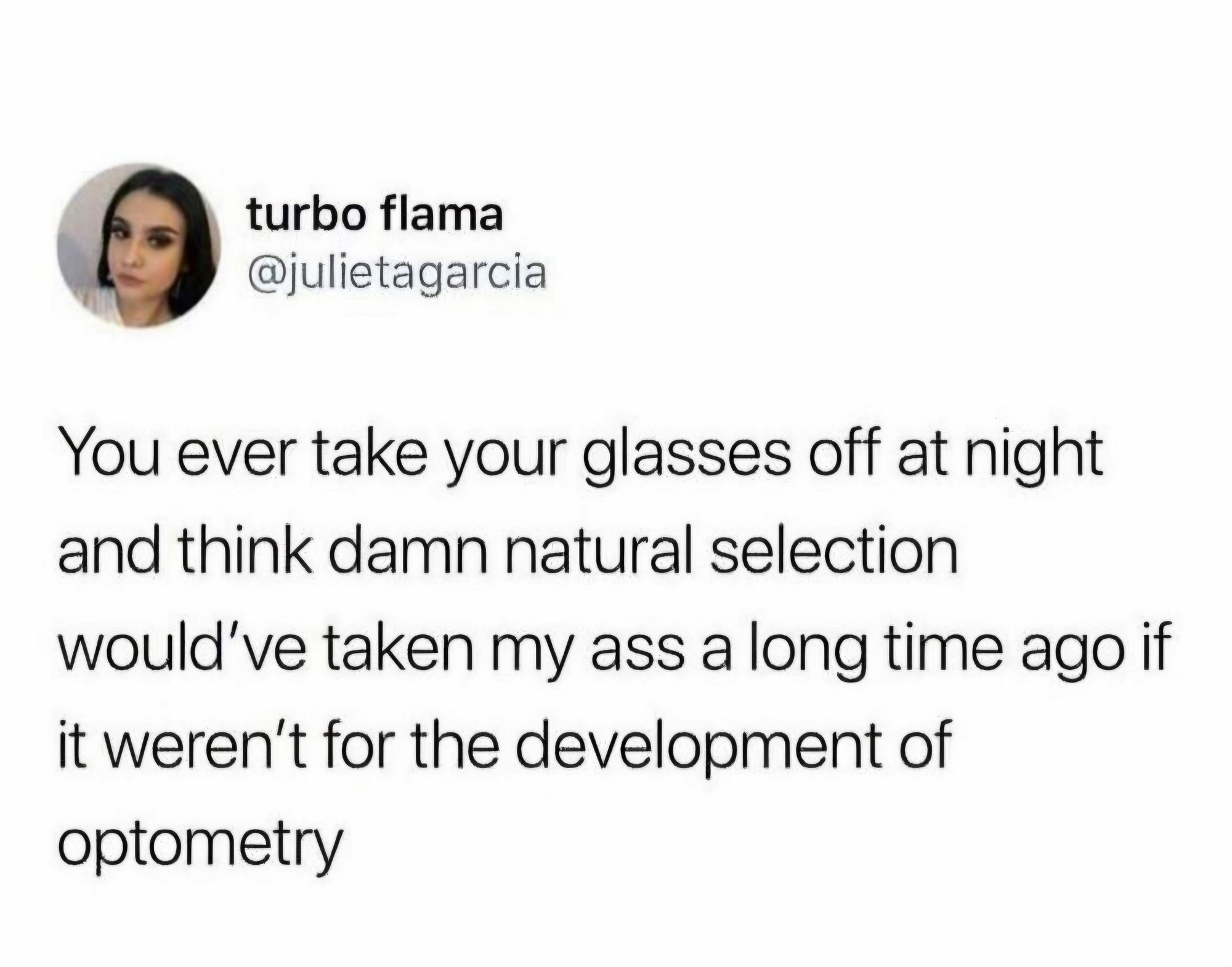this post was submitted on 18 Jul 2025
724 points (98.1% liked)
Microblog Memes
9090 readers
2702 users here now
A place to share screenshots of Microblog posts, whether from Mastodon, tumblr, ~~Twitter~~ X, KBin, Threads or elsewhere.
Created as an evolution of White People Twitter and other tweet-capture subreddits.
Rules:
- Please put at least one word relevant to the post in the post title.
- Be nice.
- No advertising, brand promotion or guerilla marketing.
- Posters are encouraged to link to the toot or tweet etc in the description of posts.
Related communities:
founded 2 years ago
MODERATORS
you are viewing a single comment's thread
view the rest of the comments
view the rest of the comments

Far as we know currently, looking/staring at screens does not cause permanent damage to your vision.
I've been looking at screens for decades and I still have perfect vision
Yeah of course because the notion that observing something would damage your eyes is insane. It's like saying that looking at trees can damage your eyes because they're very big, madness.
There's evidence piling up that there is an inverse correlation between outdoor time in childhood and nearsightedness. It's believed that the brightness of sunlight helps stimulate eye growth in a spherical shape, whereas children who don't get a lot of sunlight are more likely to have eyes grow in a non-spherical shape with greater distance between the lens and the retina.
You can search the scientific literature for myopia and childhood sun exposure for a large number of studies on the topic.
Does screen time correlate with myopia? Maybe, but through the confounding variable that both stats tend to be inversely correlated with sunlight exposure.